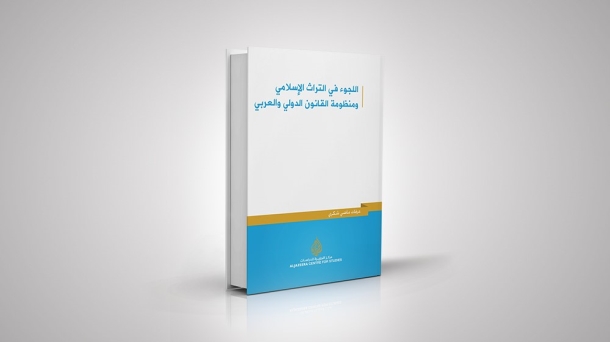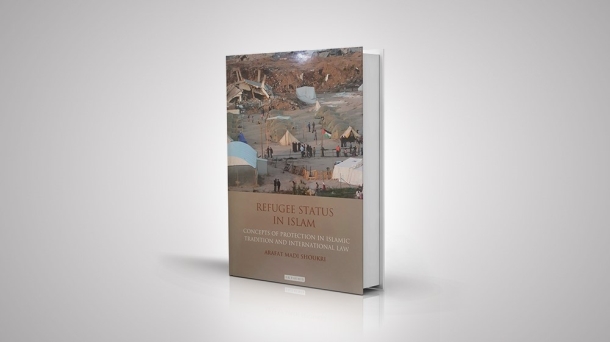
In his new book “Asylum in Islam Historiography, International and Arab Legal Systems” published by Al Jazeera Centre for Studies (AJCS), Dr. Arafat M. Shoukri addresses several interrelated questions: does asylum contradict the Islamic Law? If not, why most Arab and Islamic countries lack relevant legislations? What are the Islamic principles addressing this issue? What are the rights and obligations on the Muslim states towards refugees?
As the author points out, Islamic sources do not include a separate compilation on asylum or refugees. However as a moral imperative, granting asylum is deep-rooted in the tenets of Islam. He proposes a comparative study between the Islamic perspective on asylum and the Geneva Convention, before assessing to what extent current Arab laws regulate the issue of refugees; and whether they are in harmony with the Islamic principles and the International Law.
The new volume includes four chapters: 1) “Asylum in Pre-Islamic Era”, an introductory chapter that addresses the definition of protecting the neighbour in the tribal context in the Arab Peninsula before Islam. This social practice was the impetus of securing respect and safety to neighbours who seek asylum, and the chapter highlights several examples of this custom.
The second chapter “The Neighbourhood Ethics in the Islamic Legacy” is a detailed study of the neighbourhood-asylum correlation in Islam; and how Prophet Muhammad honoured this custom after receiving the divine revelation in Mecca. The author compares how Muslims assimilated with this custom, when they were oppressed seeking protection from Quraysh, and how they applied after they established their Islamic society in Medina as they granted asylum to other communities. Dr. Shoukri proposes a precis of how the Koran addresses the relationship to the neighbour in the context of Sourah al-Tawba, “And if any one of the polytheists seeks your protection, then grant him protection so that he may hear the words of Allah. Then deliver him to his place of safety. That is because they are a people who do not know.” (Koran 9: 96). This chapter also examines the concept of “safe haven contract” in Islamic jurisprudence, which laid the foundation of asylum in modern times.
The third chapter “Geneva Refugee Convention in light of the Islamic legacy” proposes a comparison between the 1951 Geneva Refugee Convention and the Islamic Law and whether into whether the former converges or diverges from the latter. The fourth chapter “Status of Asylum in Arab States: Reality and Legality” evaluates the asylum policies in the field whereas some Arab governments have joined the Convention.
In the last part of the book, Dr. Shoukri presents a nuanced conclusion of the common points between international law and Islamic system in dealing with asylum seekers. He formulated his findings in the context of normative advocacy and reflections on practice.
The new book published in Arabic builds on a previous publication in English “Refugee Status in Islam: Concepts of Protection in Islamic Tradition and International Law” (I.B. Taurus, 2010).http://www.ibtauris.com/Books/Law/International-law/Public-international-law/International-humanitarian-law/Refugee-Status-in-Islam-Concepts-of-Protection-in-Islamic-Tradition-and-International-Law
 |
| [AlJazeera] |